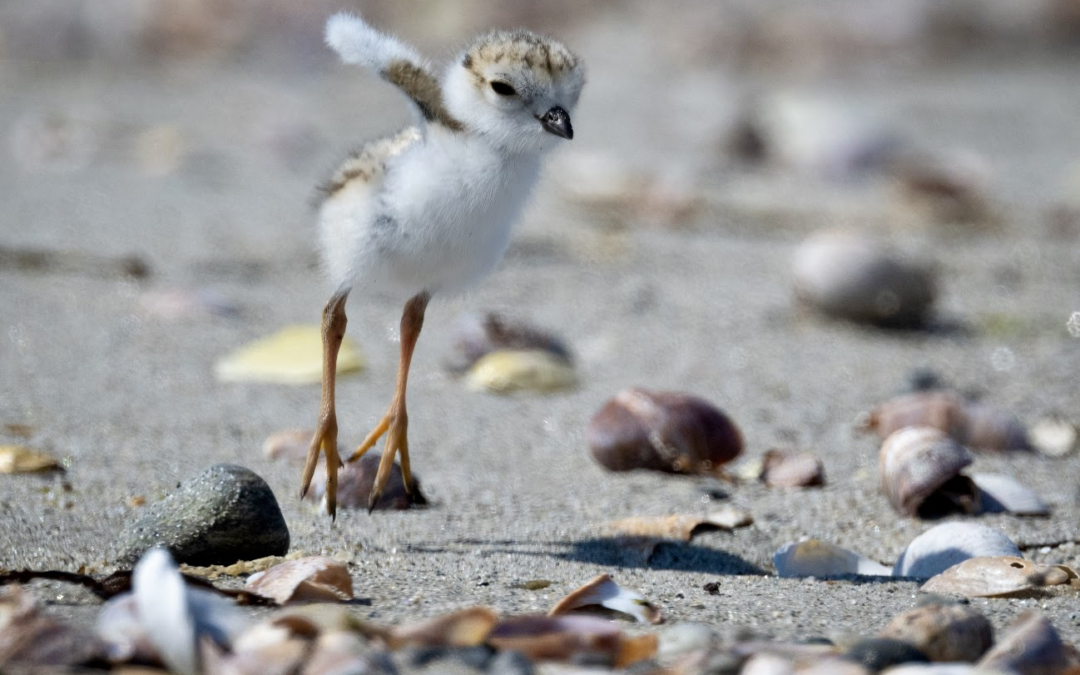Ecology—the study of living beings as interconnected with their environments—comes from the Greek oikos, “house” or “habitat.” The value of integrity speaks to the importance of doing what we say, and to acting on what we understand. And to the importance of bringing our values out where our broader human community may witness them, too.
We attend to our connection, our sense of community and oneness, with all beings and all systems we affect and in which we exist and live and move. Ecological integrity means integrating our spiritual journey with the unfolding of Earth’s systems and communities as far as possible—as we are led to do.
As we continue to change the Earth’s temperatures, seas rise. Coasts erode. Seashores, and the birds they nourish and support, lose ground.
We could act to help. We are connected. Just as no one lives apart from air, water, and the winds, no one lives apart from human-driven ecological crises. What happens to one living community happens, at some point, to all.
We need to hold global heating to 1.5C, according to Audubon’s research, to defend the very existence of vulnerable seabirds. As of this year, Earth’s already experiencing that temperature for extended periods.
If we’re going to attempt to sustain and nurture and celebrate life, we’ll need to engage our love for planet Earth—our love for a plover, whose future we make or break. Without love, what would inspire us to connect the dots between a young bird and the way our own species travels, what we eat, or what we do to heat our indoor spaces?
Photographer Michael Zager reports that official bird sanctuaries pepper the Connecticut coast. Much of the remaining beach lands are crowded with people, dogs, and even vehicles. We’ve left the piping plovers a narrow strip, squeezed between a rising Sound and higher ground. Sea level rise pushes water in during the breeding season; this can kill the plover chicks. Piping plover chicks are barely surviving. They ought to be able to survive, to thrive, to dance on the beach.
Alas, seabirds and their habitats are experiencing a severe and global decline. This also means something’s not right with the oceans.
Change Our Daily Routines for a Piping Plover?
That is the question. Often, our level of commitment is revealed within the crucible of action-oriented decisions.
To take an example (or several):
- Can we say we believe in racial equity if we are unwilling in this moment to relinquish privileges that thwart that equity?
- Can we say we believe in nonviolence as long as we benefit from state-sanctioned violence against desperate people in the name of protection of our homes or borders?
- Can we say we love seabirds if our emissions are raising sea levels yet we don’t simplify our lives to limit our impact?
- Can we say we want peaceful, Earth-friendly food systems yet continue supporting animal agribusiness? And what of our peace testimony? Depriving other animals of their course of evolution, and killing them for food, together with warring on free-living animals who would try to eat the animals we breed, confounds the quest for spiritual peace.
We reveal our values, along with our integrity, in the moments where rhetoric meets commitment.
What we ask of ourselves is simple, yet not easy. Attunement to Earth’s situation calls us to transcend our personal comfort zones. Further, it calls us to take up the hard work of challenging the comfort zones of others. We apply this understanding to our commitment to break away from practices and conveniences that cost the Earth, and that artificially separate us from the plight of a long neglected planet—all its systems, all its living communities.
We Seek an Earth Restored
Who would they be, if not for the deep, wide, scrawling marks we have made on nature? In asking that question, we can ask one of ourselves.Who would we be, were we to prioritize respect for other beings in our decision-making processes?
How might we apply our testimonies to tune our lives in harmony with the lives of these dwindling populations of free-living birds?
The untamed communities are their own true stewards. The acknowledgements we make to them must be made with sorrow and humility. Attending to messages from spirit, we’re striving to perceive not only the wrongness of humanity’s impact at this moment, but the possibility of who we could be.
Given humankind’s history, ecological integrity requires a deep shift in our idea of ourselves. In empathy with all the Earth’s members, our housemates, we commit to listen and learn. And so we strive for emergence… of a humanity reintegrated with our Earth.

